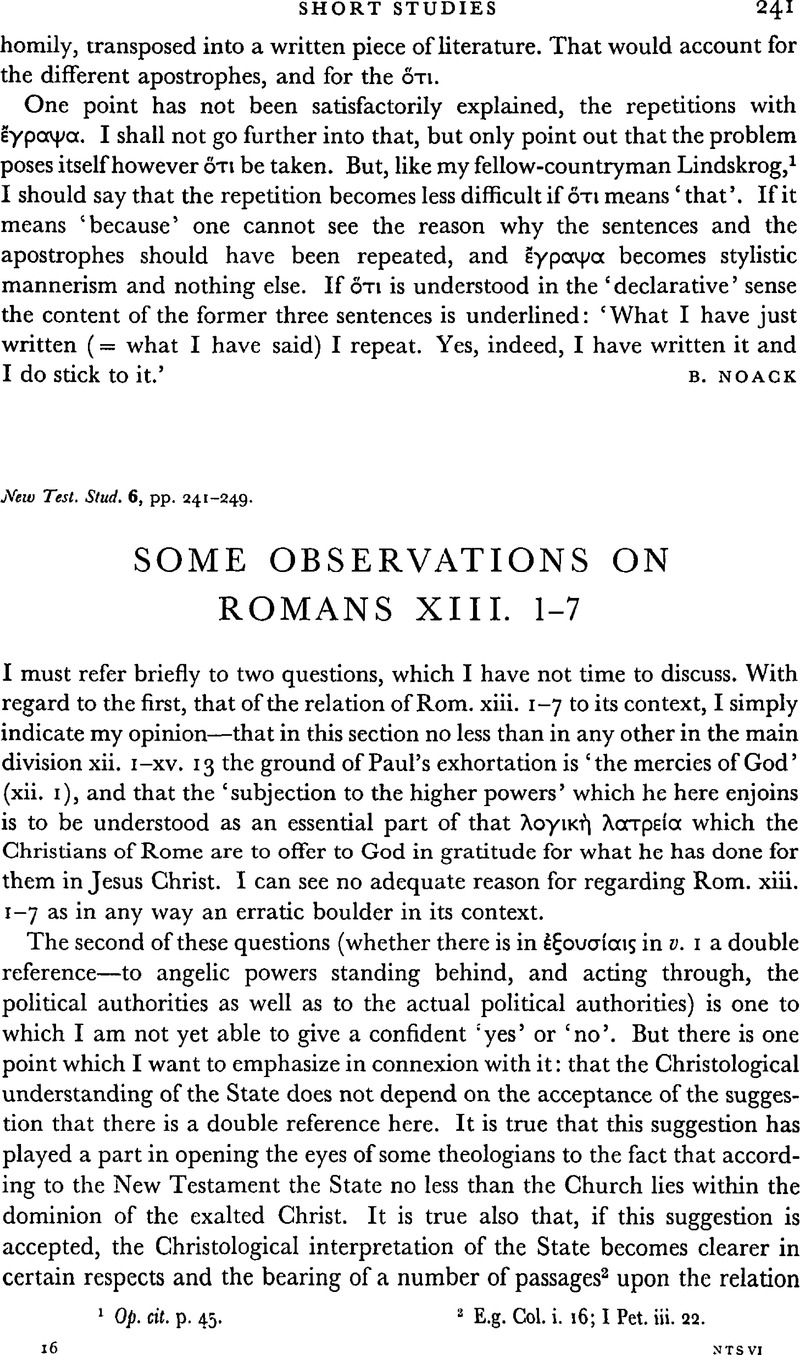Published online by Cambridge University Press: 05 February 2009

1 Op. Cit. p. 45.Google Scholar
2 E.g. Col. i. 16; I Pet. iii. 22.
1 Rom. x. 9; I Cor. xii. 3; II Cor. iv. 5; Phil. ii. II; Col. ii. 6.
2 E.g. Mark xvi. 19; Acts ii. 34 f.; I Cor. 12f.; xii. 2; I Pet. iii. 22.
3 Critical and Exegetical Commentary on the Epistle to the Romans (Edinburgh, 3rd ed. 1898), p. 365.Google Scholar
4 A Commentary on the Epistle to the Romans (London, 1957), p. 244.Google Scholar
5 Here it is coupled with πεıθαρχείν. Are we to infer that the writer regarded the two verbs as synonymous, or that he added πεıθαρχείν because he felt that the idea of obedience was not necessarily included in úποτάσσεσθαı?
1 Cf. the Textus Receptus form of I Pet. v. 5b.
2 St Paul's Epistle to the Ephesians: An Exposition (London, 1909), pp. 170 f.Google Scholar
3 Commentaries on the Epistles of Paul to the Galatians and Ephesians, translated by Pringle, W. (reprinted Grand Rapids, 1955), pp. 316 fGoogle Scholar. Cf. the comment on I Pet. v. 5 in his Commentaries on the Catholic Epistles, translated by Owen, J. (reprinted Grand Rapids, 1948), p. 147.Google Scholar
4 If what is here said is right, then O. Michel's statement (Der Brief an die Römer (Göttingen, 1955), p. 283, n. 3) that úποτάσσεσθαı ‘ist stärker als πειθεσθαı oder úπακúεıν’ is correct, if by ‘stärker’ is meant ‘more inward’, but not if he means by it ‘expressing more emphatically the idea of obedience’.Google Scholar
1 Op. cit. p. 285.Google Scholar
2 L' Épître de Saint Paul aux Romainu (Neuchâtel, 1957), p. 185, n. 1.Google Scholar
3 OP. cit. p. 245.Google Scholar
1 Commentaries on the Epistle of Paul the Apostle to the Romans, translated by Owen, J. (reprinted Grand Rapids, 1955), p. 480.Google Scholar
2 Op. cit. p. 243.Google Scholar
1 Op. cit. p. 314.Google Scholar
2 At least, to judge from the passages cited by Michel, op. cit. p. 285, n. 9.Google Scholar